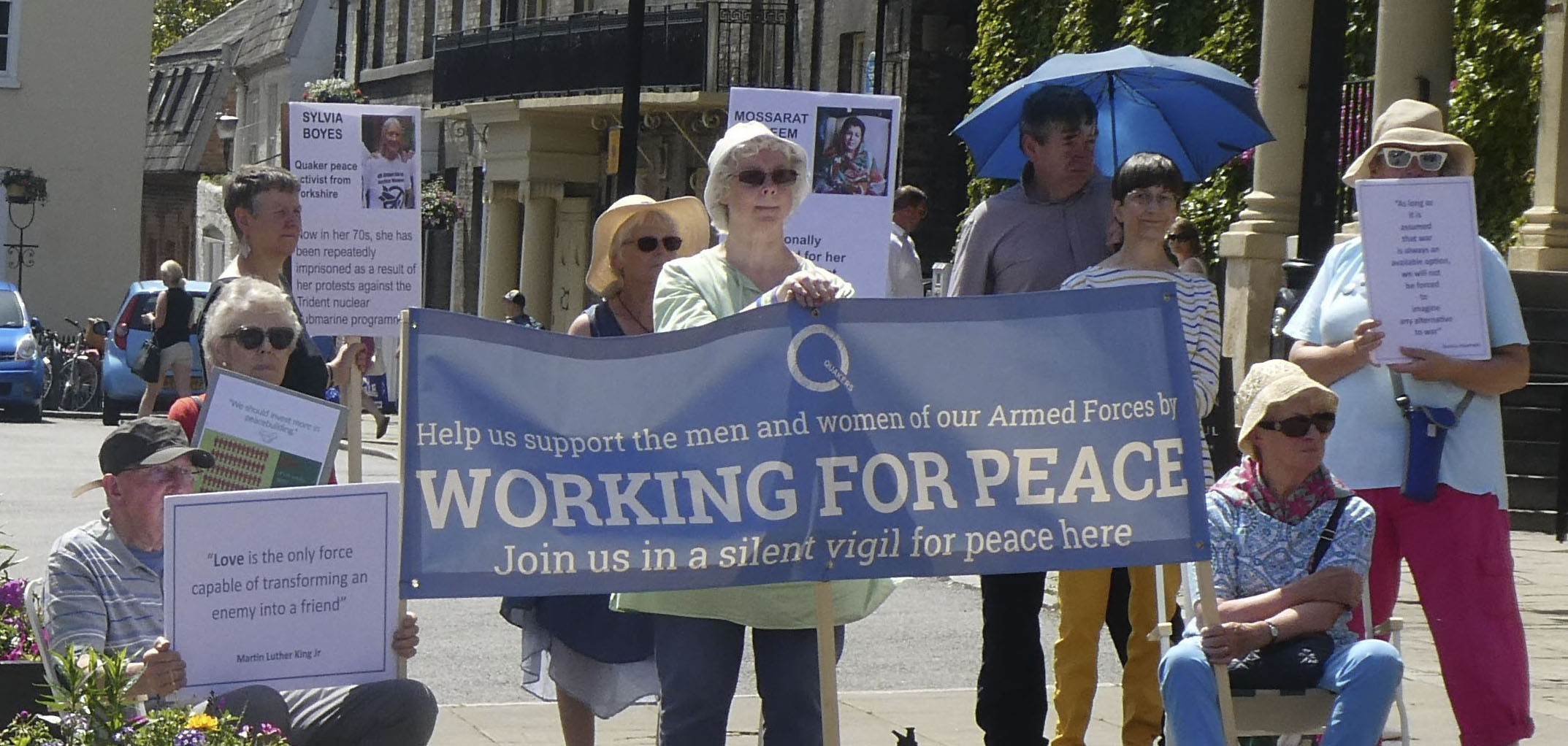Quakers stand for peace on Armed Forces Day
Friends around the country promoted peace on Armed Forces Day

As Quakers gathered to promote peace on Armed Forces Day, this year’s occasion got off to a shocking start with news that a nursery allowed preschool children to dress in real military body armour during an event.
The Peace Pledge Union (PPU) was made aware of the costume play at the ABC Nursery in Boston, Lincolnshire, on 28 June when a concerned relative alerted them. The nursery took photographs of the children, which were posted on Facebook.
According to the PPU, ‘a visiting soldier appears to have invited the preschool children to try on his body armour and helmet, with the approval of the nursery’s management’.
Symon Hill, campaigns manager of the PPU, described the incident as one of the most shocking examples he has seen of everyday militarism in the UK. He said: ‘I felt sick as I looked at these photos. I thought I had got used to seeing pictures of children being militarised, but never before have I seen such young children being treated in this way in Britain…
‘Children are being given an image of armed force as fun and exciting before they are even old enough to attend school. [They] have a right to hear a range of perspectives on war and peace… so that they can form their own opinions… We urgently need procedures in place to protect children from this sort of behaviour.’
The PPU also expressed ‘grave concern’ about other child-focused Armed Forces Day events, such as at a Hampshire school where children wore ‘camo’ fancy dress, and a ‘free family fun day’ in Gillingham, sponsored by the multinational arms firm BAE Systems.
Across the UK, Quakers protested other military celebrations where primary school-aged children were invited to handle real weapons, including the Armed Forces Day National Event in Salisbury, sponsored by eight arms companies.
Salisbury Meeting hosted a drop-in afternoon on 29 June as a counterbalance to the three-day occasion. Kathrine Sealey, from Salisbury Meeting, told the Friend: ‘Visitors were offered the opportunity to view a number of short films dealing with the increasing military presence in our schools and the UK military’s practice of recruiting at age sixteen, the only country in Europe to do so. There was plenty of scope for wide-ranging conversations.’
Quaker Alan Jones told the Friend the local paper did not print the Meeting’s letter explaining what they were offering and why, but they attracted a large number of visitors.
Local Friend Ken Smith also took part in a radio programme on BBC Wiltshire about faith and the armed forces, alongside the Bishop of Salisbury, Nicholas Holtam.
Elsewhere, Friends hosted vigils and meetings. Bury St Edmunds Friends held its annual Silent Vigil for Peace to present a different narrative, with two Friends on hand for questions.
Suffolk Quaker Graham Gosling told the Friend: ‘This year, local armed forces organisations were highlighting the contribution of women in the armed forces, so we decided to highlight women peacemakers (Quaker and non-Quaker). The placards included… Scilla Elworthy, Sylvia Boyes, Ruth Cadbury, Rachel Corrie and Mossarat Qadeem.’
He added: ‘Our main banner stated that: “We support the men and women of our armed forces by WORKING FOR PEACE.” As fate would have it, we found ourselves outside a café that had covered its awning with an array of military flags. This created a rather poignant juxtaposition.’
You need to login to read subscriber-only content and/or comment on articles.
